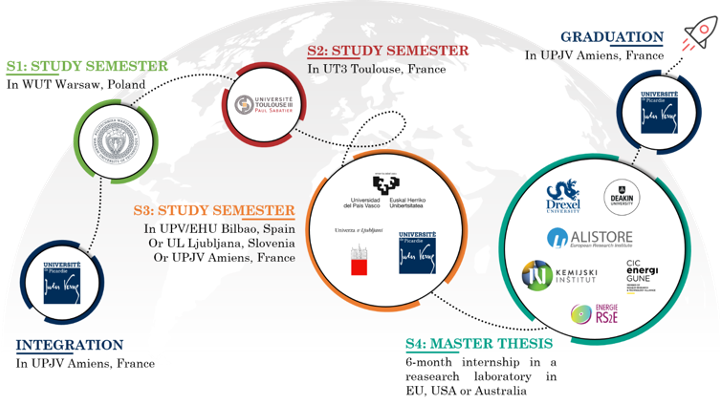Curriculum
YEAR 1 - Fundamentals
Year 1 is more dedicated to the science fundamentals (electrochemistry, materials science, physical chemistry, etc.) associated with Energy Storage and Conversion. The first semester (S1) will be spent in Poland (Warsaw) by the whole class, which then will continue for S2 in France (Toulouse).
YEAR 2 – Practical & technological aspects
Year 2 is more focused on practical and technological aspects covering all the levels of the value chain (synthesis of materials, assembly of energy storage systems, prototyping, large-scale facilities).
Indeed, the third Semester, more applied and focusing on technology, will be spent by students either in Spain (Bilbao), Slovenia (Ljubljana) or France (Amiens) that have recently massively invested on technology transfer and prototyping of material synthesis and battery manufacturing.
Semester 4 will be dedicated to a 6-month Master’s Thesis research project within one of the thirty participating organizations in Europe, USA or Australia (Universities and Research Centers of ALISTORE-ERI, companies including BOSCH, UMICORE, RENAULT, TOTAL, E4V, SAFT, SOLVAY).
In addition to scientific and technological modules, during the S1-S4, several modules for soft/transferable skills are provided to students, essential for future careers.








